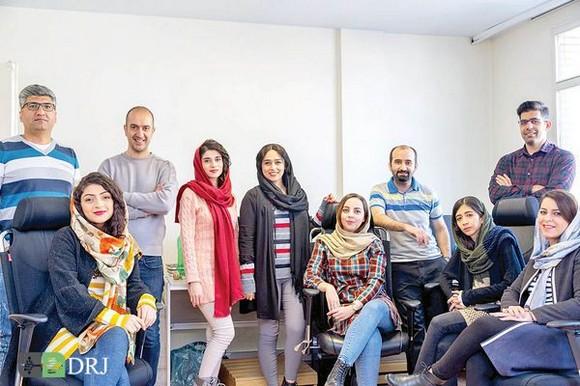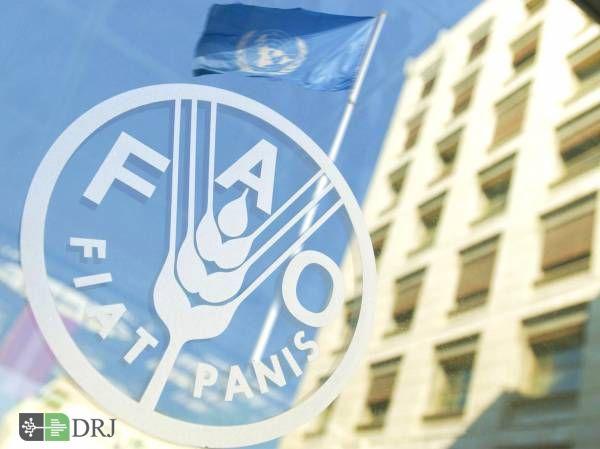Rene Guenon
Rene Guenon ( Abd al-Wahid Yahya )
Considered to be the founder of the Traditionalist school , Guenon was born in Blois , France on November 15 , 1886 . He devoted the early years of his life to the study of mathematics and philosophy . He went to Paris in 1906 , where he maintained regular contact with various spiritualist groups . In 1909 , he edited and published a review journal called La Gnose for which he wrote a number of essays and reviews on spirituality and esoterism . In 1910 , he met the famous French painter Gustav Ageli , who had by that time embraced Islam and taken the name Abd al-Hadi . Guenon was initiated into Sufism in 1912 and became Muslim , taking the name Abd al-Wahid Yahya .
He finished his university education in 1916 with a thesis called “Leibniz and Infinitesimal Calculus” . The same year , he met Jacques Maritain , one of the most influential Catholic thinkers of the 20th century . In 1921 , he prepared his doctoral dissertation under the title “General Introduction to the Study of Hindu Doctrines” . Guenon’s thesis was rejected by his doctoral committee , which led to his eventual abandonment of academia in 1923 . The dissertation was later published as a book under the same title . In 1924 , he published Orient and Occident , one of his major works on comparative philosophy and spirituality . This was followed by The Crisis of the Modern World ( 1927 )--perhaps his most famous and widely read book .
A year after the publication of The Crisis of the Modern World , Guenon’s wife died . He went to Egypt in 1930 as part of a project for the study and publication of some Sufi texts . He never left Egypt again . He married Fatima , the daughter of the Sufi Shaykh Muhammad Ibrahim , in 1934 and settled in a house near al-Azhar University where he had regular contact with ‘Abd al-Halim Mahmud , the famous president of al-Azhar and scholar of Sufism . Although Guenon received occasional visits from such members of the Traditionalist School as Titus Burckhardt , Frithjof Schuon and Martin Lings , he remained largely reclusive during his years in Egypt , working on his major books and articles . Towards the end of his life , Guenon’s poor health , which had accompanied him throughout his life , deteriorated further , leading to his death on January 7 , 1951 .
Guenon’s writings span a wide array of subjects from metaphysics and symbolism to the critique of the modern world and traditional sciences . One of the constant themes of his corpus is the sharp contrast between the traditional worldview shared by various religions of the world and modernism , which he considered to be an anomaly in the history of mankind . His writings devoted to the critique of modernism and the modern world contain some of the most profound and enduring analyses of the modern world and its philosophical outlook . Orient and Occident and The Crisis of the Modern World , both published in the first half of the 20th century , are still widely read today and have been translated into various languages . In addition to these two books devoted exclusively to the critique of the modern world from a traditionalist point of view , Guenon’s other writings contain many references to metaphysical and philosophical misconceptions prevalent in modern Western societies .
The second part of Guenon’s corpus deals with traditional doctrines and it is in these works that Guenon attempts to revive traditional concepts and sciences that have been either ignored or lost with the rise of modern philosophy . Such works as The Reign of Quantity and the Signs of the Times , Multiple States of Being and Fundamental Symbols of Sacred Science are devoted to the revival of traditional doctrines and have been instrumental in the rise and spread of the Traditionalist School represented by such figures as Frithjof Schuon , Ananda Coomaraswamy , Titus Burckhardt , Marco Pallis , Seyyed Hossein Nasr and Martin Lings . In addition to these , some of Guenon’s writings deal with certain themes and specific religious traditions , all of which have been written from the same perspective of traditional metaphysics and esoterism . For this category of writings , we can mention The Symbolism of the Cross , Man and His Becoming According to the Vedanta , Introduction to the Study of Hindu Doctrines , and the Grand Triad .
Guenon’s view of science is an integral part of his endeavor of reviving the traditional worldview and cannot be properly understood in isolation from the general purview that he adopts throughout his works . The gist of Guenon’s metaphysical views also lies at the heart of the Traditionalist School: the primordial and perennial Truth , which manifests itself in a variety of religious traditions and metaphysical systems , has been lost in the modern world . The modernists seek to reduce all higher principles and levels of reality to their manifestation in the world of multiplicity and relative existence . Modern philosophy carries this out by reducing everything to the individualistic horizon of the subject and by relegating objective reality to the discursive constructions of the knowing subject . In the field of natural sciences , positivism and its scientistic allies similarly reject any reality that is beyond the reach and scrutiny of the quantitative measurement of physical sciences . In the social realm , the moral and aesthetic principles are left to the arbitrary decisions and consensuses of the majority , thus jeopardizing the objective reality of the truth . For Guenon , the malaise of the modern world is its relentless denial of the metaphysical realm , the metaphysical world being comprised of both philosophy and spirituality . Guenon sees everything in the world of creation as an application and manifestation of metaphysical principles that are contained in the perennial teachings of religions , and applies them to every single subject that he addresses in his works . Both the value of traditional sciences of nature and the misguided claims of modern secular science are judged in proportion to their proximity or distance from these principles . In this sense , Guenon is a metaphysician par excellence who has devoted his life to the diagnosis and correction of the metaphysical mistakes of the modern world .
As far as Guenon’s writings on science are concerned , we can apply the aforementioned two-fold distinction and analyze his views in two broad categories . While the first category of writings pertains to the critical analysis of modern science and its philosophical viewpoint , the second group of writings deals with traditional sciences of nature , such as cosmology , alchemy , philosophy of numbers , and the science of the soul , which Guenon elucidates as numerous applications of metaphysical principles to the domain of the relative and the physical .
To emphasize the deep contrast between the traditional and modern sciences , Guenon calls the former ‘sacred science’ and the latter ‘profane science’ ( The Crisis of the Modern World , p . 37 , 47 ) . Sacred science , which , in this particular context , is synonymous with traditional science , is based on “intellectual intuition” on the one hand , and the acceptance of the hierarchy of being , on the other . For Guenon , intellectual intuition , which lies at the foundation of traditional societies , precedes discursive knowledge for it is directly related to the knowledge of the Absolute . The relative , which is the domain of physical sciences and their applications in the form of various quantitative methods and technology , is not to be denied but placed in its proper position in the great chain of being . Sciences of nature deal with the relative in the total economy of things , and in this sense they pertain to the world of multiplicity . This explains , according to Guenon , the existence of various traditional sciences that display significant differences in form and language from one traditional civilization to another but remain the same in essence and principle . When construed as multifarious adaptations and “illustrations” ( Ibid . , p . 48 ) of metaphysical principles to the realm of corporeal existence , the traditional cosmological and scientific systems that use different methodologies and languages within and across civilizations become justified .
In understanding Guenon’s notion of science , therefore , one can hardly overemphasize the significance of the relation between the Principle and its adaptations . For Guenon , metaphysics studies the Principle and provides principial knowledge whereas the sciences of nature investigate its earthly , relative , and multi-layered manifestation in the cosmos . Scientific theories , even when enunciated as empirically established and universal truths , cannot function as substitutes for higher principles but only as further corroborations of the principles of which they are but applications . In this regard , metaphysics , as Aristotle has said , is the science of all sciences , namely it is a knowledge that provides a total framework for all other forms of knowledge , whether based on theoria or praxis . Consequently , metaphysics connects all branches and forms of knowledge , supplying a frame of reference within which the physical sciences function . To carry this point a step further , Guenon reverses the relation between theory and experiment and gives priority to “preconceived ideas” – a point of view remarkably close to Thomas Kuhn’s concept of paradigm . For Guenon , it is a “peculiar delusion , typical of modern ‘experimentalism’ , to suppose that a theory can be proved by facts whereas really the same facts can always be equally well explained by a variety of different theories” ( Ibid . , p . 42 ) .
Guenon attributes this mistake to what he calls the “superstition of facts” , a creation of modern profane science , which supposes that science investigates “bare facts” devoid of any subjective , theoretical or supra-sensual ingredients . By contrast , Guenon makes a radical intellectual claim and grounds all human understanding , theoretical , experimental or aesthetic , in intellectual intuition , which is also the main gateway to metaphysical knowledge . All knowledge is a form of understanding in one way or another – a conclusion voiced and articulated by many philosophers of modern hermeneutics . To use the terminology of the philosophy of science , we can assuredly say that Guenon would agree with the basic postulate that all observation is theory laden , i . e . , it is preceded by a set of preconceived ideas and suppositions that cannot be accounted for within the exclusive purview of physical sciences . As we have pointed out before , sciences of nature are applications and adaptations of metaphysical principles to particular fields of study and as such derive their philosophical justification not from their subject matter , as the positivists would argue , but from those principles that inform and determine their purview . In this sense , scientific knowledge , insofar as it derives its justification from principles , is neither false nor useless . Thus Guenon emphatically states that “there is no question of maintaining that any kind of knowledge , however inferior , is illegitimate in itself; what is not legitimate is simply the abuse which occurs when subjects of this kind absorb the whole of human activity , as is the case today . ” ( Ibid . , p . 43 ) .
It is from this point of view that Guenon takes up the question of the rise of the experimental method in modern sciences . He puts the question in the following way: “Why have the experimental sciences received a development in the modern civilization such as they have never received at the hands of any other civilization before?” ( Ibid . , p . 42 ) . Guenon answers this crucial question by underscoring a powerful tendency of the modern world , and it is the exclusive concern of the modern mind with what is given to us in our immediate sense experience . Natural sciences by definition confine themselves to the corporeal realm and provide a systematic access to what can be tested only in the sensible world . The sciences thus deal with the most minimal aspect of reality , which is what is immediately available to us in terms of sensation , feelings , experiences , and so on . Once the quantitative dimension of things is construed to be the ultimate foundation of what can be known and studied , philosophy , following Kant and his students , becomes a handmaid of physics , viz . , a mere interpreter of the data supplied by physical sciences .
For Guenon , this represents the peak of modern reductionism , which turns all intellectual endeavors into bad philosophy . This is what Guenon calls “the reign of quantity” as the title of his most important work on traditional sciences of nature states ( See his The Reign of Quantity and the Signs of the Times , Introduction ) . As Guenon puts it , the reason why the experimental method has gained an unprecedented prominence in the modern world is that the physical sciences “confine their attention to things of the senses and to the world of matter , and also that they lend themselves readily to the most immediate practical applications; their development , going hand in hand with what may well be termed the “superstition of facts” , is thus quite in accordance with the specifically modern tendencies , whereas preceding ages would , on the contrary , have been unable to find sufficient inducements for becoming absorbed in this direction to the extent of neglecting the higher orders of knowledge . ” ( The Crisis of the Modern World , pp . 42-3 ) .
Thus Guenon considers the rise of modern science not as a natural outcome of advances in experimental methods but rather as a result of a fundamental change in modern man’s Weltanschauung , which Guenon takes to be a “process of degeneration” from the point of view of intuitive-metaphysical knowledge . By the same token , the infinitely detailed data gathered by the sciences about the quantitative dimension of reality signifies , for Guenon , not a deepening of knowledge but “dispersion in detail … which can be pursued indefinitely without advancing a single step further in the direction of true knowledge . ” ( Ibid . , p . 41 ) . As Guenon has explained in the Reign of Quantity and his other writings , this is a result of the severing of scientific knowledge from higher principles outlined by traditional metaphysics . Another important outcome of this process is that the natural sciences are now concerned primarily with practical applications , and in many cases this is combined with a will to power . This is the common confusion between science and technology . As Guenon puts it: “…it is not for its own sake that Westerners in general cultivate science as they understand it; their primary aim is not knowledge , even of an inferior order , but practical applications , as may be inferred from the ease with which the majority of our contemporaries confuse science and industry , so that by many the engineer is looked upon as a typical man of science” ( Ibid . , p . 41 ) .
Guenon assigns two interrelated functions to the sciences of nature when they are conceived in their traditional setting . The first pertains to the fact that sciences as “applications of the doctrine … allow of linking up all the different orders of reality one to another and of integrating them in the unity of the total synthesis . ” ( Ibid . , p . 47 ) . Said differently , natural sciences analyze the hierarchy of being and show the underlying unity that exists in various domains of the cosmos . The second function of the traditional sciences of nature is rather pedagogical in that they prepare us for higher forms of knowledge: “they [i . e . , natural sciences] constitute , for some people at least , and in accordance with their own particular aptitudes , a preparation for a higher type of knowledge and a kind of pathway leading towards it , while from their hierarchical arrangement , according to the levels of existence to which they relate , they form as it were so many rungs of a ladder with the aid of which it is possible to raise oneself to the heights of pure intellectuality . ”
Guenon has further developed the above themes in The Reign of Quantity and the Signs of the Times with more emphasis on the analysis of various scientific concepts from the traditional point of view . With great mastery and lucidity , Guenon deals with such concepts as quantity and quality , prime matter , “spatial quantity and qualified space” , time , individuation , unity and simplicity , “solidification of the world” , geometrical symbols , numbers , change and becoming , and a host of other concepts , all analyzed with a view towards underscoring the deep intellectual transformation that took place with the rise of modern secular science . In this particular book whose title summarizes a great deal of its message , Guenon focuses on the quantification of reality in the name of scientific measurement , prediction , exactitude .
As the most prominent defender of traditional metaphysics and philosophy of science in the 20th century , Guenon has played a key role in the development of a highly critical position towards what Wolfgang Smith has called modern ‘scientism’ . Even though Guenon has remained somewhat unknown in Western academic circles owing to his scathing criticism of the modern worldview and uncompromising defense of tradition , his writings have made a deep impact on many intellectuals and writers in the West and the East .
Ibrahim Kalin
July 25 , 2001
Bibliography
Rene Guenon’s major works include the following:
The Crisis of the Modern World , tr . by A . Osborne , M . Pallis , R . Nicholson ( London: Luzac , 1962 ) .
The Multiple States of Being , tr . by Jocelyn Godwin ( New York: Larson , 1984 ) .
The Reign of Quantity and the Signs of the Times , tr . by Lord Northbourne ( Baltimore: Penguin Books , 1972 ) .
Symbolism of the Cross , tr . by Angus Macnab ( London: Luzac , 1958 ) .
East and West , tr . by William Massey ( London: Luzac , 1941 ) . See also the new translation by Martin Lings ( New York: Sophia Perennis , 2001 ) .
The Esotericism of Dante , tr . by Henry D . Fohr ( New York: Sophia Perennis , 2001 ) .
The Great Triad , tr . by Peter Kingsley ( Cambridge: Quinta Essentia , 1991 ) .
Insights into Islamic Esoterism and Taoism , tr . by Henry D . Fohr ( New York: Sophia Perennis , 2001 ) .
Introduction to the Study of Hindu Doctrines , tr . by M . Pallis ( London: Luzac , 1945 ) .
Man and His Becoming According to the Vedanta , tr . By R . Nicholson ( London: Luzac , 1946 ) .
The Metaphysical Principles of the Infinitesimal Calculus , tr . by Henry D . Fohr ( New York: Sophia Perennis , 2001 ) .
Spiritual Authority and Temporal Power , tr . by Henry D . Fohr ( New York: Sophia Perennis , 2001 ) .
Fundamental Symbols: The Universal Language of Sacred Science , tr . by Alvin Moore , revised and edited by martin Lings ( Cambridge: Quinta Essentia , 1995 ) .
One may also refer to the following sources for Guenon’s life and writings:
Rene Alleau and M . Scriabine , Rene Guenon et l’Actualite de la Pensee Traditionnelle: Actes du Colloque International de Cerisy-La-Salle; 13-20 Julliet 1973 ( Paris: Dervy Livres , 1981 ) .
Robin Waterfield , Rene Guenon and the Future of the West: the Life and Writings of a 20th-century Metaphysician ( Wellingborough: Crucible , 1987 )
Jean Robin , Rene Guenon: Temoin de la Tradition ( Paris: G . Tredaniel , 1986 ) .













































